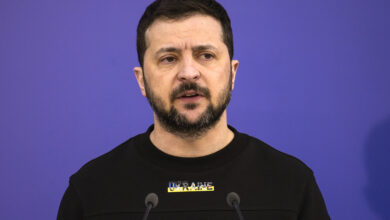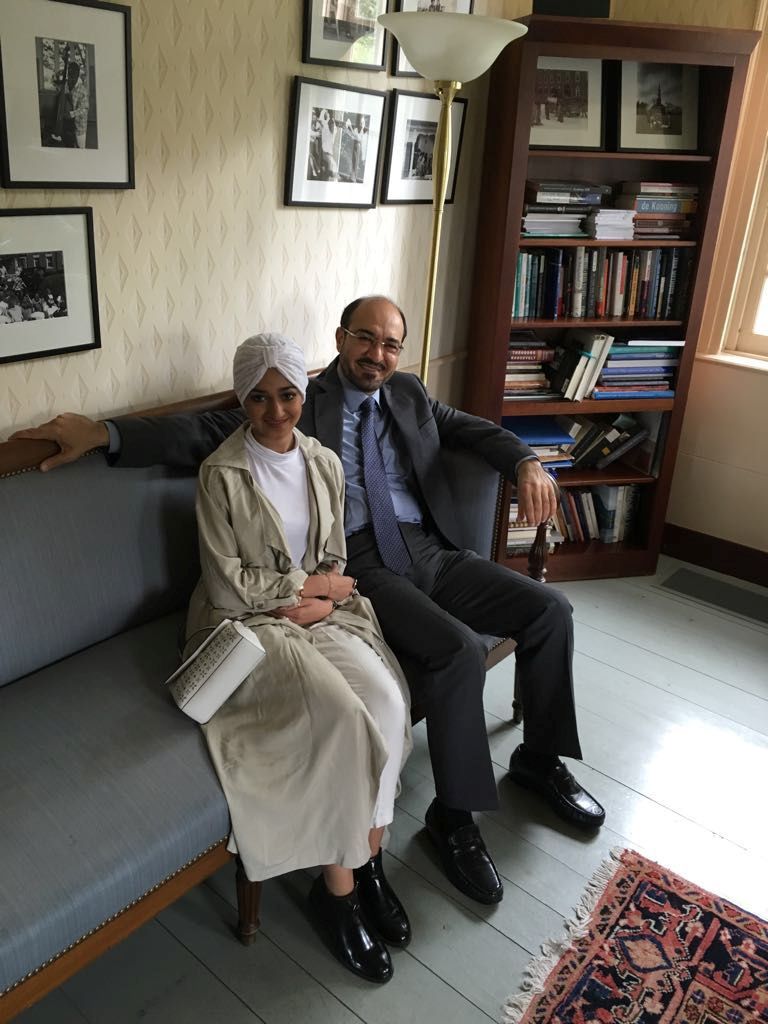Tunis–Western security officials worry crucial intelligence on terror groups in North Africa will dry up as repressive — but effective — security services are dismantled or reorganized following the Arab revolts.
Those concerns, expressed by European and Israeli intelligence officers in interviews with The Associated Press, add urgency to reports of foreign fighters with suspected al-Qaida crossing into Tunisia.
Extremist groups such as al-Qaida in the Islamic Maghreb (AQIM) are not believed to have played a big role in the uprisings in Tunisia, Egypt and Libya. But concerns are mounting they will exploit the instability caused by the sudden collapse of autocratic regimes that clamped down hard on terrorism and cooperated with the West.
"The intelligence coming from our partners in North Africa has been very important over the years," one European security official told AP.
"Although the agencies were seen as being particularly brutal, they were often very effective," he said. "I think it's too soon to say what will happen in North Africa, but it's fair to say that we're concerned further instability could affect intelligence exchanges."
Another intelligence official from a different European country said there already is a noticeable drop in the flow of intelligence from North Africa. "It's already happening," he said, calling it a bigger concern for Europe than the risk of reprisals by Islamist extremists for the killing of Osama bin Laden.
The officials spoke on condition of anonymity because of the sensitivity of the matter.
While Pakistan, Afghanistan and Yemen are considered priority countries in the fight against al-Qaida, North Africa has been a staging ground for various terror groups affiliated with, or inspired by, al-Qaida leaders.
In a message recorded shortly before his death and released online Wednesday, bin Laden praised the protest movements in Tunisia and Egypt and predicted that revolutions would spread across the region. Bin Laden and his followers saw many Middle East governments as corrupt and hoped their collapse would lead to rule based on their austere interpretation of Islamic law.
North Africa has featured in several major terror plots in Europe, including the 2003 plot in Britain in which a suspected al-Qaida operative from Algeria was convicted for trying to spread the deadly poison. Moroccans or people of Moroccan origin made up most of the 29 people tried for the 2004 Madrid train bombings that killed 191 people in Europe's deadliest Islamist terror attack.
One-third of terror suspects arrested in the European Union in 2010 were of North African origin, according to Europol, the EU's police agency.
French authorities have long trumpeted strong counterterrorism cooperation with Algeria, which suffered a bloody Islamic insurgency that peaked in the 1990s. Relatively small anti-government protests have erupted in Algeria in recent months, but nothing on the scale of that in Egypt, Tunisia and Libya.
Still, Europol's latest terror assessment in April said "the instability of state security forces may weaken the ability of states such as Algeria to effectively tackle a group such as AQIM." Such groups "may be able to take advantage of the temporary reduction of state control for terrorist purposes," Europol said.
Those concerns were underscored by the recent influx of foreign fighters near the Tunisian-Algerian border. A Tunisian colonel was killed Wednesday in a clash with an armed group of Libyans, Algerians and Tunisians, local Tunisian officials said. The group's identity wasn't immediately known.
A French official, speaking on condition of anonymity because of the sensitivity of the matter said "I'm not convinced" that the incidents in Tunisia had links to AQIM as some local media suggested. He noted that some people — including the Libyan opposition Transitional National Council — have an interest in trying to draw some links as part of efforts to provoke greater Western participation in the region.
"I don't rule it out, but I don't have proof either," the official said.
Egypt, Libya and Tunisia had varying records of cooperation with the West. Under Hosni Mubarak, Egypt was long seen as a key ally for the West. Tunisia, while also a Western ally, kept quiet about many of its internal counterterrorism efforts under President Zine El Abidine Ben Ali and was seen as sparing on intelligence sharing. Moammar Gadhafi's Libya — once a state sponsor of terror — developed cooperative ties with the West only after he renounced his nuclear program.
An August 10, 2009, US diplomatic cable released by WikiLeaks described Libya as a "critical ally in US counterterrorism efforts" and "one of our primary partners in combating the flow of foreign fighters."
Egypt's State Security Investigations Service (SSIS) had close relations with both the FBI, which offered its members training, and the CIA, "from whom the SSIS received prisoners for interrogation under the U.S. rendition program," Canadian security analyst Andrew McGregor wrote in an April analysis published by the Jamestown Foundation, a Washington think tank.
The Egyptian security service was also blamed for the worst human rights abuses during Mubarak's rule, using the fight against terrorism as an excuse to crack down on political dissent.
After Mubarak stepped down on February, protesters stormed the security service's main headquarters and other offices, seizing documents to keep them from being destroyed to hide evidence of human rights abuses. The SSIS was dismantled and the new interior minister, Maj. Gen. Mansour el-Essawy, said a new agency in charge of national security and fighting terrorism will be formed.
In Tunisia, the Interior Ministry of the interim government in March dissolved the dreaded political police — one of Ben Ali's greatest tools of repression — and the state security apparatus, but it remains unclear what will replace them.
Magnus Ranstorp, terror expert at the National Swedish Defense College, said it may just be a matter of replacing the top leaders, while keeping the structure of the agencies intact.
"You may change the leadership but you won't change the entire security service," he said.
Nevertheless, Western intelligence partners are likely to see the flow of information "strangled" temporarily as established lines of communication disappear. "You don't recreate that overnight," Ranstorp said.
Mathieu Guidere, a professor at Toulouse University who studies Islamic fundamentalism, said around 30 top officials had been replaced in Tunisia's Interior Ministry.
"The new people are not used to the protocols. They don't have the personal contacts" with Western intelligence agents that their predecessors did, said Guidere. "So intelligence is more difficult to get."
A key concern in Egypt — not least for neighboring Israel — is the release of thousands of prisoners during the uprising, potentially including hardened terrorists. For years Egypt and Israel enjoyed close security cooperation, including a joint effort to stop weapons smuggling into Gaza from the Sinai desert.
Israeli security officials, speaking on condition of anonymity because they were not authorized to speak to the media, said there is "complete chaos" in Sinai that has caused immediate damage to its intelligence collection efforts.
With no strong regime to deal with, Israel is concerned about the way it will collect intelligence on the Gaza front, they said.



